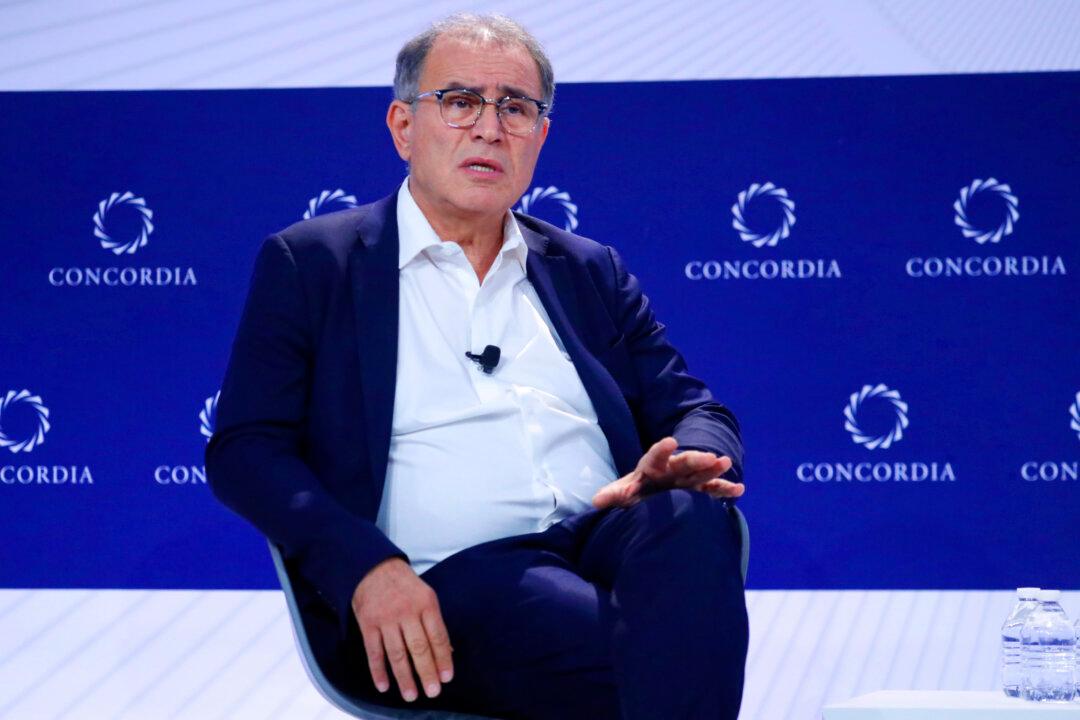Noted economist Nouriel Roubini has warned that the worst is yet to come for the U.S. economy in the wake of the recent banking turmoil, which could lead to a serious credit crunch.
Roubini, who is nicknamed “Dr. Doom” for being one of the first economists to call the recession fo 2008–09, made the comments during an interview with Fox Business’s “The Claman Countdown” on April 10.




